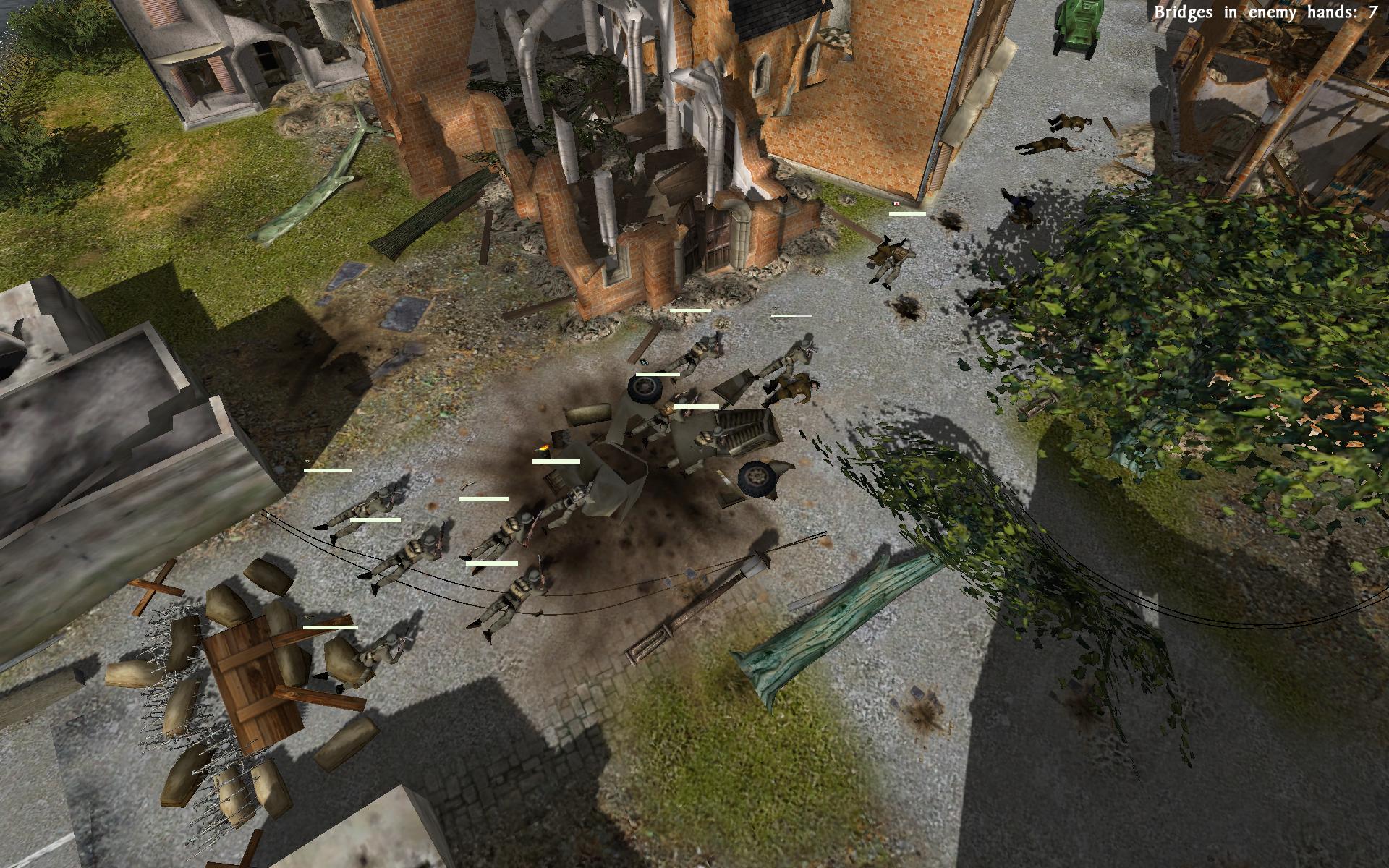GamesRadar+ Verdict
Pros
- +
Detailed
- +
realistic landscapes
- +
Using combined arms tactics
- +
Going on the offensive
Cons
- -
Soggy multiplayer support
- -
Sporadically good/bad AI
- -
Crappy pathfinding
Why you can trust GamesRadar+
Moscow to Berlin is technically the fourth game in a series that commenced with Desert Rats vs. Afrika Korps, a smart little WWII RTS that grabbed modest critical praise. If you liked that game and its successors (D-Day and Battle of the Bulge), you'll probably enjoy MtB despite its dings and scratches. And if you didn't, well, who can blame you - World War II titles are a dime a dozen these days.
What you get for the not-quite-budget price of $30 are twenty missions overlapping three campaigns that range from Berlin to Moscow and back again, 100 weapons and units, a beautifully bleak 3D engine and a few new AI tricks. The word "campaign" is a bit misleading: while the missions proceed chronologically per each, there's no unit carryover. You simply drop into a scenario with pre-fab units and either win or lose. As such, the game feels less like a standalone WWII game per se, and more like a dolled up mod.
Tactically, MtB controls just like any other conventional RTS, of course with an interface so transparent that the only reason to play the tutorial is to scope unit special abilities. The new and much ballyhooed AI does indeed result in, say, riflemen squads that retreat when they're staring down tanks, discerning infantry that hop out of half-trucks when under fire, and though it's never clear how morale works (or if it's even gauged), soldiers that will indeed occasionally surrender. But so what? With other designers doing as much (or more), that's like touting a video card because it supports 3D gaming.
More info
| Genre | Strategy |
| Description | The Nazi war machine meets Hollywood action in this real-time strategy battle for the Eastern Front that doesn't go anywhere new. |
| Platform | "PC" |
| US censor rating | "Rating Pending" |
| UK censor rating | "" |
| Release date | 1 January 1970 (US), 1 January 1970 (UK) |
Cyberpunk sequel's associate director reveals the "hardest quest I have ever designed and implemented" is in The Witcher 3: "I was losing my mind and my sleep"
Ryan Gosling in Star Wars? The Barbie star is reportedly in talks to join Deadpool & Wolverine director Shawn Levy's movie

33 years after his cartoon was canceled, Captain Planet is back (and kinda hot) in a new comic book
Most Popular



